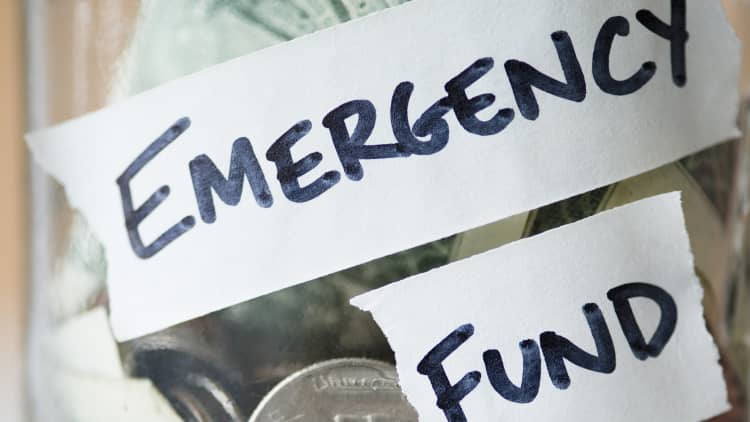Americans are more optimistic about their odds of digging out of debt — but many may be wearing rose-colored glasses.
Consumers' revolving credit increased 13.5 percent in the third quarter compared to a year earlier, for a total outstanding of more than $992 billion, according to new data from the Federal Reserve.
In the same quarter, credit card delinquencies rose to 2.74 percent of all accounts, according to the American Bankers Association. That's up from 2.48 percent in the previous quarter, but still well below the 15-year average of 3.68 percent.

Despite those red flags, fewer consumers say they expect to "never get out of debt," according to a new survey from CreditCards.com.
In fact, just 12 percent who have debt say they expect to die in debt, down from 21 percent a year ago. The site polled 1,000 adults in December, with a margin of error of plus or minus 3.7 percentage points.
"The fact that people are so confident in the face of these growing debts was surprising to us," said Matt Schulz, senior industry analyst for CreditCards.com.
Nearly a quarter of Americans say they are currently debt-free, the survey found, up from 14 percent two years ago. Respondents also said they were being more responsible with money — 48 percent say they have less debt than their closest friends and family, and 72 percent said that if their debt were erased today, they would put any windfall toward savings.
To improve your chances of knocking down debt for good, start by examining your spending habits, said Victoria Fillet, a certified financial planner and a co-founder of Blueprint Financial Planning in Hoboken, N.J.
You might find areas where you can cut back, to knock out existing debts more quickly, she said. Or if you're overspending, you could find you're not doing as well on that debt repayment as you think — adding to a new balance even as you pay down another.
"If you do not pay your credit cards fully at the end of every month, you should be taking your credit cards, putting them in a baggie and putting them in the freezer," Fillet said.
Set a reasonable payoff schedule, based on how much you can afford to allocate to repayment each month. That can encourage you to stay on track — "You need to see the light at the end of the tunnel," she said.
From a numbers perspective, first tackling the balance with the highest interest rate is likely to save you the most money. But some consumers find it empowering to knock out a small balance first, so they have fewer debts to focus on.
Aim to set aside money for savings even as you pay down debt, Schulz said. Most Americans don't have enough put away for a rainy day, and that leaves you with few options besides whipping out a credit card when an emergency strikes.
"The truth of it is, most people are an unexpected job loss or a medical emergency away from having some real trouble," he said.


